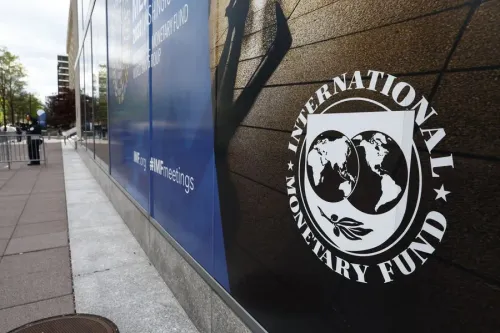Did Hyundai Motor Group Really Sell 65.1% of Its Vehicles in Advanced Markets?

Synopsis
Key Takeaways
- 65.1% of sales in advanced markets.
- Outperformed Toyota, Volkswagen, and GM.
- High-margin sales rate: 68.5% from premium models.
- Strong performance linked to SUV sales and Genesis.
- Solid financial ratings, with stable debt ratios.
Seoul, Sep 23 (NationPress) Hyundai Motor Group achieved 65.1 percent of its vehicle sales in advanced markets, such as the United States and Japan, in the previous year, surpassing competing global automakers in these high-profit areas, according to a report released on Tuesday.
The report from credit rating agency Nice Investors Service Inc. indicated that advanced markets comprised 65.1 percent of Hyundai Motor Group's overall sales in 2024, compared to Toyota Motor's 59.2 percent, Volkswagen's 49.4 percent, and General Motors' 55.6 percent, as noted by the Yonhap news agency.
In the report, advanced markets were categorized as the United States, Canada, Western Europe, South Korea, and Japan. The agency noted that these markets provided higher average selling prices.
The South Korean automotive group also outperformed its rivals in terms of the sales rate of high-margin trim levels, with 68.5 percent of combined sales from Hyundai and Kia deriving from premium models as of June, ahead of GM at 65.1 percent, Toyota at 63 percent, and Volkswagen at 55.1 percent.
Analysts credited the group’s robust performance to a surge in sales of sport utility vehicles (SUVs) and the vehicles from Genesis, its luxury brand.
The financial stability of Hyundai and Kia was also rated positively in the report.
By the end of June, Hyundai's debt ratio was 63.8 percent, while Kia's was 64.6 percent. Though slightly higher than Toyota's 54.6 percent, these figures are considerably more stable than Volkswagen's 114.5 percent and GM's 180.4 percent.
Additionally, the company has unveiled its revamped customer brand experience center in Seoul, designed to better highlight its heritage and culture. The facility now includes an automotive-themed library created in collaboration with Japan’s Culture Convenience Club, famous for operating Tsutaya Books. It hosts over 2,500 books and approximately 500 car-related collectibles, including rare vintage items expected to captivate motor enthusiasts.










